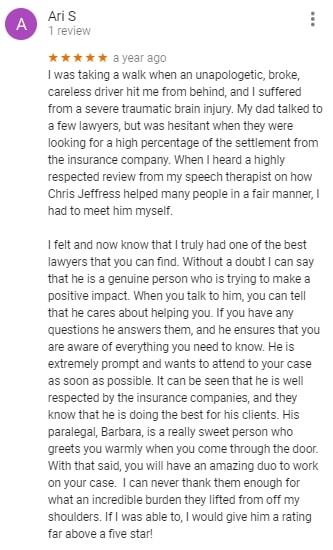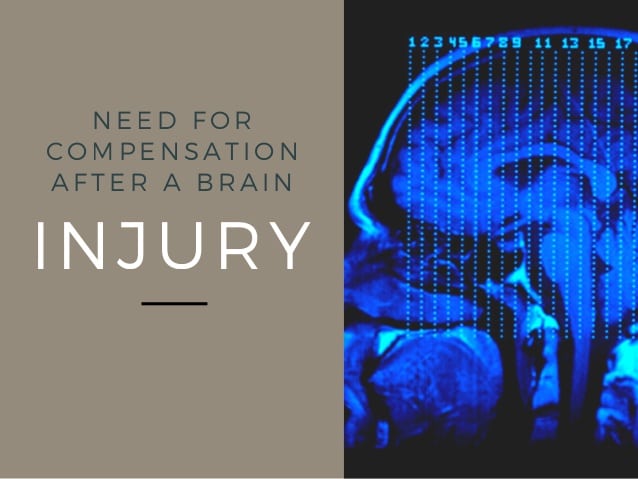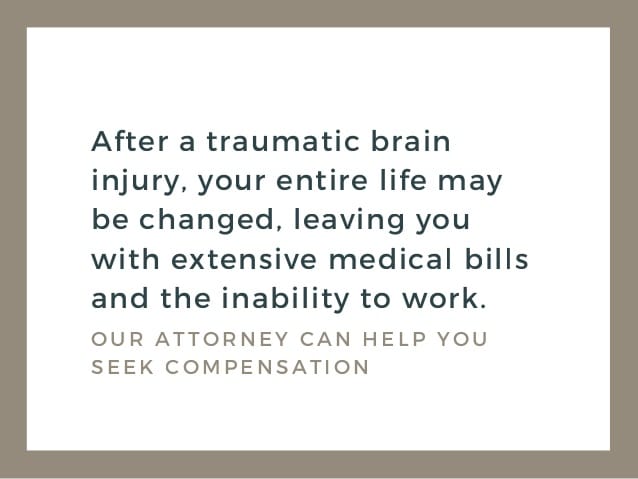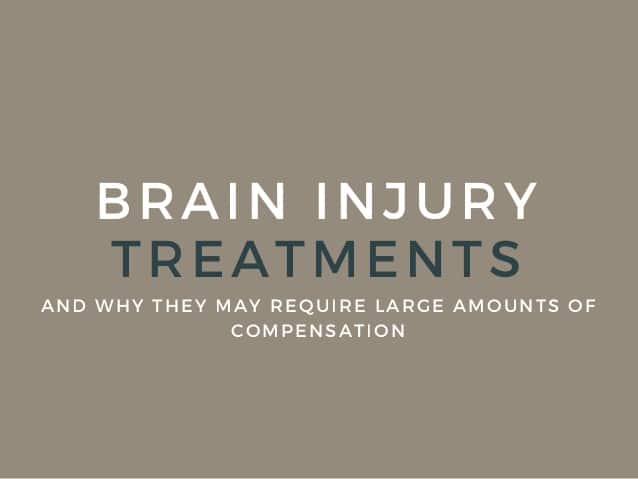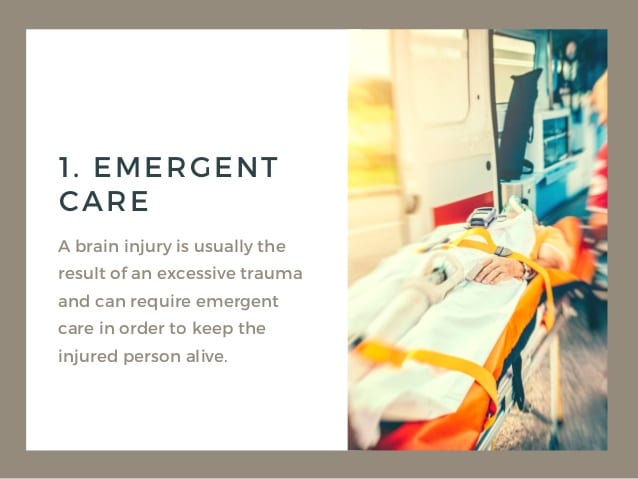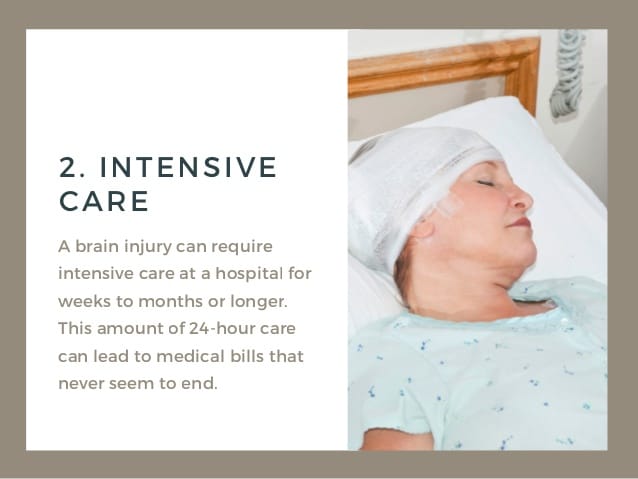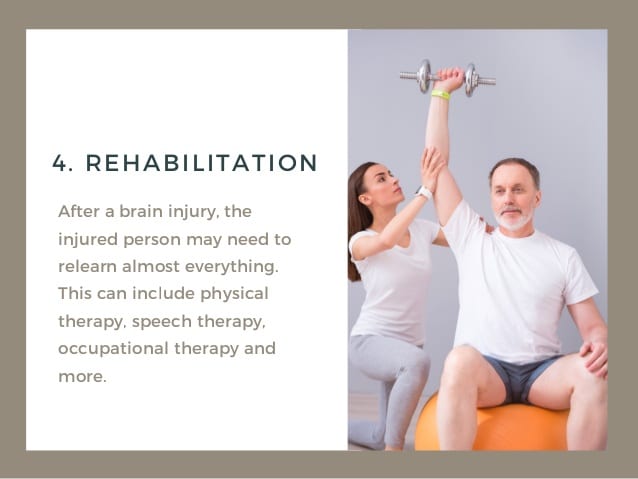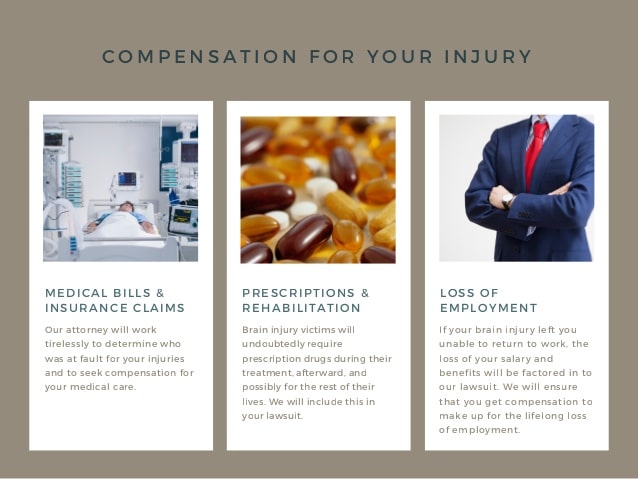A brain injury can change your life in an instant, leaving you with lasting medical, financial, and emotional challenges. If you or a loved one has suffered a brain injury due to someone else's negligence, you deserve representation from a personal injury lawyer who prioritizes your recovery and financial security.
At Jeffress Law, we understand the complexities of brain injury cases and their impact on individuals and families. With over 130 five-star reviews, our firm is known for providing compassionate, results-driven advocacy for victims in the Boulder, Fort Collins, Longmont, and Loveland areas.

Common Causes of Brain Injuries
A brain injury can be caused by a variety of accidents, including:
Common Types of Brain Injuries
The most common types of brain injuries include:
- Traumatic brain injuries: Known as TBI, this type of brain injury is a direct result of external blunt force, such as being hit in the head by something or going through a windshield. It is also seen frequently in football players.
- Cerebral contusion: This type of injury is classified as a brain contusion. It usually occurs with a direct blow to the victim's head.
- Acquired brain injury: An ABI is any type of brain injury that occurs after birth. It is not related to a congenital defect. ABIs include all traumatic brain injuries, infections, strokes, or cancer.
- Diffuse axonal injuries: DAIs are among the most traumatic brain injuries an individual can sustain. They occur when the head is rotated rapidly.
Potential Compensation
Brain injuries affect patients in major ways. They may need long-term care or even have to relearn everyday tasks like walking and eating. "Invisible injuries" are also common. Patients may have trouble with basic activities or processes, get confused easily, or struggle with speech.
The attorneys at Jeffress Law factor all of this information into your case to help you get the coverage you need. They can seek compensation for:
- Medical expenses
- Rehabilitation expenses
- Prescriptions
- Emotional suffering and distress
- Speech, physical, and occupational therapies
- Insurance claims
- Loss of employment/benefits
What to Do After Suffering a Head Injury

In general, steps to take following a head injury include:
- Get medical attention.
- Follow your doctor's orders for rest, avoiding driving, avoiding heavy equipment use, etc.
- Take only medications approved by your doctor.
- Write down everything you can remember about the accident that caused the brain injury.
- Call Jeffress Law for a complimentary case review.
Schedule an appointment with your doctor even if you did not lose consciousness. A head injury may not cause immediate symptoms, so it is important to get evaluated even if you feel nothing is wrong.
Once you have received medical care, call an attorney. Talk to them before signing anything or talking to other people's insurance companies. They will let you know your options for pursuing compensation.
Potential Long-Term Consequences of Brain Injuries
A severe brain injury can have life-altering effects, including:
- Depression
- Anxiety
- Disability
- Paralysis
- Limited movement
- Cognitive changes
- Memory impairment
- Problems concentrating
- Emotional changes and mood swings
- Sensitivity to light and/or certain sounds
- Loss of sense of smell or taste
- Loss of vision or hearing
- Impaired executive functioning (problem solving, planning, decision-making, multitasking, etc.)
These are serious outcomes that may be long-lasting or permanent. You may require advanced equipment, home modifications, ongoing treatments, and ongoing rehabilitation to adapt to the effects of the brain injury. All of these things come at an expense.
Although compensation can never be guaranteed, we encourage you to browse Jeffress Law's past case results to see what is possible. When you are injured because someone else was careless, you deserve maximum compensation and justice. The attorneys at Jeffress Law do not back down and will fight to reach the best possible outcome.
FAQs
Brain injury victims have several legal rights, primarily centered on seeking compensation for medical expenses, lost wages, pain and suffering, and other damages.
If the injury was caused by negligence – such as a car accident, medical malpractice, or a defective product – the victim can file a personal injury lawsuit against the responsible party. Additionally, they have the right to legal representation to help navigate the claims process, negotiate settlements, or take the case to court if necessary.
Brain injury victims are protected under state and federal laws, such as the Americans with Disabilities Act (ADA), which safeguards their employment and public accommodations rights. If the injury leads to permanent disability, victims may also have access to long-term disability benefits.
In Colorado, the statute of limitations for filing a brain injury lawsuit is generally two years from the date of the injury. However, there are some exceptions:
- Motor vehicle accidents: The deadline extends to three years if the injury resulted from a motor vehicle accident.
- Minors and mentally incapacitated victims: The deadline may be extended if the injured person is a minor or was mentally incapacitated due to the injury.
- Medical malpractice: If the brain injury was caused by medical malpractice, a claim must be filed within two years from when the injury was discovered (or should have been discovered) but no later than three years from the date of the incident.
- Government entities: The timeline is much shorter if the lawsuit involves a government entity. Victims must file a notice of claim within 182 days.
A successful brain injury claim requires strong evidence demonstrating liability, causation, and damages. Some of the most important types of evidence include:
- Medical records (hospital reports, imaging scans, documentation from neurologists or other specialists)
- Witness statements
- Accident reports
- Expert testimony
- Photos and videos from the accident scene
- Employment records (to show lost wages due to the injury)
- Personal journals or testimony from family and friends
- Neuropsychological evaluations and life-care planning assessments
The more comprehensive the evidence, the stronger the claim. Legal representation can be invaluable in gathering and presenting this information.
Brain injury cases differ from typical personal injury claims in several ways:
- Medical complexity: Unlike a broken bone or soft tissue injury, brain injuries often involve long-term cognitive, emotional, and physical impairments that require extensive medical treatment and rehabilitation.
- Higher damages: These cases also involve higher damages, as victims may face lifelong medical care, lost earning capacity, and diminished quality of life.
- Need for expert input: Proving the full extent of a brain injury often requires expert testimony from neurologists, neuropsychologists, and other specialists.
- Delayed symptoms: Brain injuries can be difficult to detect, with symptoms sometimes emerging weeks or months after the initial trauma. This makes it harder to connect the injury to the accident.
- Risk of insurance disputes: Insurance companies often dispute these claims aggressively due to the high compensation involved.
Why Choose Jeffress Law?
Jeffress Law, led by attorneys Christopher W. Jeffress and Lisa M. Ritter, offers dedicated legal representation for brain injury victims in Boulder and throughout Colorado.
With over three decades of experience, Mr. Jeffress transitioned from defending corporations to fighting for individuals injured by negligence. Since 1994, he has focused solely on helping victims stand up to insurance companies.
Ms. Ritter brings a strong background in personal injury law across multiple states. She uses her legal knowledge and compassionate approach to advocate for the wrongfully injured.
Schedule a Consultation with a Boulder Brain Injury Attorney
If you need help after a brain injury, Jeffress Law is the clear choice. We offer personalized representation to help you get the compensation you deserve.
Contact us today to discuss your case. Fill out our contact form, call us at 303-993-8685, or text 303-225-9101. We serve clients in the Boulder, Longmont, Broomfield, Fort Collins, and Loveland areas.

